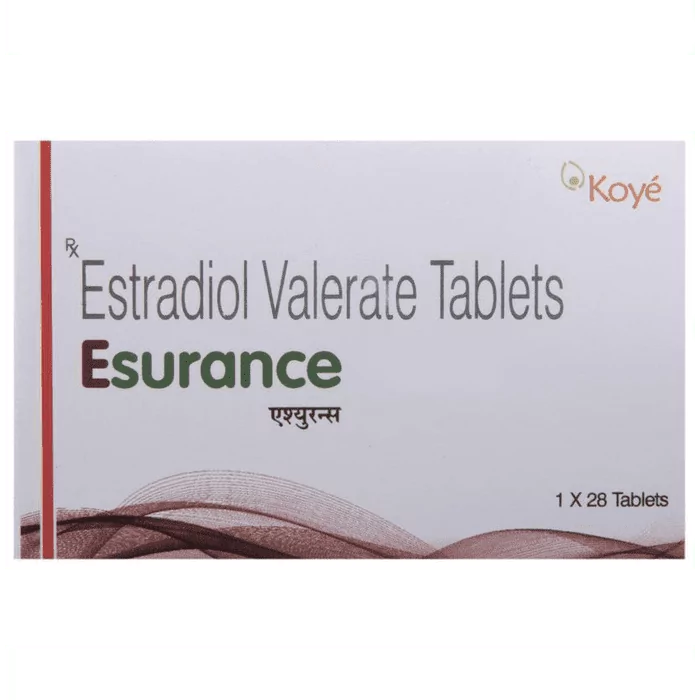Every woman goes through a stage in her life when her reproductive capabilities slowly decline.
This stage is known as Menopause.
Menopause results in a variety of symptoms, such as irregular periods, headaches, and mood swings, causing significant concern among women.
Another common concern among Menopausal women is hair thinning.
This symptom of Menopause not only disrupts everyday life but also makes individuals under confident about themselves.
Therefore, people often inquire about tips to restore hair health after Menopause.
In this article, we will learn how to reverse thinning hair after Menopause in detail.
What Causes Hair Thinning After Menopause
Hair thinning after Menopause results mainly from hormonal changes in the body.
Many hormones play an important role in promoting hair growth and thickness. One such hormone is Estrogen.
At the Perimenopausal stage, Estrogen production declines rapidly.
This decline leads to a hormonal imbalance that negatively affects hair follicles and results in hair thinning.
Additionally, genetics, age-related factors, and general health conditions can also influence hair health during and after Menopause.
Save up to 90% on your medicine bills

Progynova 2 mg

Oestrogel 2.5 gm / 1.5 mg

Estrabet 2 Tablet

Esurance Tablet
How to Reverse Thinning Hair After Menopause
It is possible to reverse hair loss due to Menopause using the right strategies.
These strategies include seeking proper medical care and making certain lifestyle changes.
Let us learn about these methods in detail below:
Nutrient-rich Diet
 Source: Signature_image
Source: Signature_imageConsuming a nutrient-rich diet plays a crucial role in promoting hair growth.
Foods like spinach, kale, almonds, and walnuts, abundant in vitamin D, iron, and omega-3 fatty acids, are particularly beneficial for promoting hair health.
Additionally, some people may also opt for hair supplements such as Biotin and Vitamin D.
Besides these supplements, various other supplements are available for managing Menopausal symptoms, such as hair thinning.
To learn about these supplements in detail, Read Menopause Supplements: A Guide to Effective Relief.
Hormone Replacement Therapy (HRT)
If you are dealing with noticeable hair loss or thinning after Menopause, consider consulting a certified doctor for proper treatment of Menopause.
After your diagnosis, they may suggest Hormone Replacement Therapy (HRT) to reverse your hair loss.
HRT involves taking medications or supplements with Estrogen and Progesterone to restore the natural hormonal balance in the body.
Topical Treatments
Some people may benefit from topical hair products such as Minoxidil to enhance hair growth during Menopause.
However, researchers are still unclear regarding the exact applications and effects of Minoxidil.
Therefore, it is important to use such hair products under the guidance of a licensed doctor.
Other Treatment Options
As discussed above, hormonal fluctuations are the primary cause behind symptoms such as hair thinning.
Addressing these imbalances with the correct Menopause medications may prove beneficial to get rid of such symptoms permanently.
Hence, consider consulting a doctor to receive a prescription for medications for Menopause, such as antidepressants.
Conclusion
Menopause is a natural biological stage that signifies the end of a woman’s reproductive years.
Hair thinning is a common symptom of Menopause that poses a significant concern for affected individuals and their self-confidence.
Therefore, people often wonder how to reverse thinning hair after Menopause.
To address Menopausal hair loss, it is essential to consult a licensed doctor for an accurate diagnosis.
Following the diagnosis, they may prescribe Hormone Replacement Therapy (HRT) or other medications for alleviating Menopause symptoms.
Individuals may also opt for topical treatments such as Minoxidil under the guidance of a certified doctor.
A nutritious diet and vitamin supplements may also promote overall hair health during and after Menopause.

Frequently Asked Questions
Will thinning hair from Menopause grow back?
Yes, thinning hair due to Menopause can grow back.
With appropriate measures like a nutritious diet, Hormone Replacement Therapy (HRT), and topical treatments, one can promote healthier hair and minimize further loss.
Consult a doctor for personalized guidance based on individual health needs.
What are the best hair supplements for Menopause?
There are no best hair supplements for Menopause as individual response to supplementation varies widely.
However, Biotin, Vitamin D, and Omega-3 fatty acids are some hair supplements considered beneficial for Menopause.
How long does Menopause hair loss last?
The duration of hair loss due to Menopause varies significantly among women.
For most women, symptoms such as hair loss last as long as Menopause lasts, which may be a few to several years.
Is Biotin good for Menopause?
Yes, Biotin can be beneficial during Menopause.
Biotin, a B vitamin, supports hair health and may help combat hair thinning.
However, it is crucial to consult a doctor before including Biotin supplements in your diet.
What vitamins are good for thinning hair after Menopause?
Some vitamins beneficial for thinning hair after Menopause include Biotin, Vitamin D, and Iron.
Additionally, a balanced diet can help address nutritional deficiencies and promote hair growth during Menopause.
Cheap Medicine Shop only refers to credible, authoritative sources for our content. If you’re curious about how we ensure the integrity of our content, we encourage you to read our Content Information Policy.














